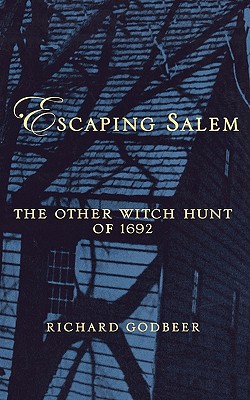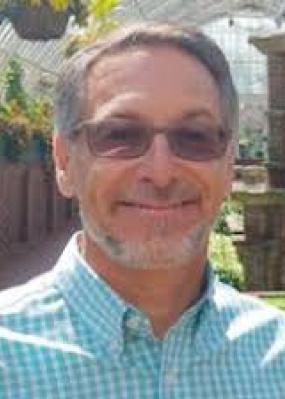

 Oxford University Press, USA
Oxford University Press, USA
Escaping Salem: The Other Witch Hunt of 1692


Key Metrics
- Richard Godbeer
- Oxford University Press, USA
- Paperback
- 9780195161304
- 8 X 5 X 0.6 inches
- 0.5 pounds
- History > United States - State & Local - New England (CT, MA, ME, NH, RI, VT)
- English
 Secure Transaction
Secure TransactionBook Description
Drawing on eyewitness testimony, Richard Godbeer tells the story of Kate Branch, a seventeen-year-old afflicted by strange visions and given to blood-chilling wails of pain and fright. Branch accused several women of bewitching her, two of whom were put on trial for witchcraft. Escaping Salem takes us inside the Connecticut courtroom and into the minds of the surprisingly skeptical Stamford townspeople. Were the pain and screaming due to natural or supernatural causes? Was Branch simply faking the symptoms? And if she was indeed bewitched, why believe her specific accusations, since her information came from demons who might well be lying? For the judges, Godbeer shows, the trial was a legal thicket. All agreed that witches posed a real and serious threat, but proving witchcraft (an invisible crime) in court was another matter. The court in Salem had become mired in controversy over its use of dubious evidence. In an intriguing chapter, Godbeer examines Magistrate Jonathan Selleck's notes on how to determine the guilt of someone accused of witchcraft, providing an illuminating look at what constituted proof of witchcraft at the time. The stakes were high--if found guilty, the two accused women would be hanged.
In the afterword, Godbeer explains how he used the trial evidence to build his narrative, offering an inside perspective on the historian's craft. Featuring maps, photos, and a selected bibliography, Escaping Salem is ideal for use in undergraduate U.S. survey courses. It can also be used for courses in colonial American history, culture, and religion; witchcraft in the early modern world; and crime and society in early America.
Author Bio
Dr. Godbeer joined KU on July 1, 2019. He received his B.A. from Oxford University in 1984 and his Ph.D from Brandeis University in 1989. He taught in the Department of History at the University of California, Riverside, from 1989 to 2004 and in the Department of History at the University of Miami from 2004 to 2014; he served as founding Director of the Humanities Research Center at Virginia Commonwealth University from 2014 to 2019.
His research focuses on witchcraft, religious culture, gender, and sexuality in colonial and revolutionary North America.
Dr. Godbeer is the author of six books: The Devil's Dominion: Magic and Religion in Early New England (Cambridge University Press, 1992), Sexual Revolution in Early America (Johns Hopkins University Press, 2002), Escaping Salem: The Other Witch Hunt of 1692 (Oxford University Press, 2004), The Overflowing of Friendship: Love between Men and the Creation of the American Republic (Johns Hopkins University Press, 2009), The Salem Witch Hunt: A Brief History with Documents (Bedford/St. Martins, 2011), and World of Trouble: A Philadelphia Quaker Family's Journey Through the American Revolution (forthcoming from Yale University Press in Fall 2019).
Dr. Godbeer is currently working on two book projects, Performing Patriarchy: What Gender Meant in Early America and The Empire of Topsy-Turvy, which will tell the story of the partnership between composer Arthur Sullivan, dramatist W.S. Gilbert, and theatre impresario Richard D’Oyly Carte, who together dominated the late Victorian theatre in England and produced a string of famous comic operas, including The Mikado and The Pirates of Penzance.
Dr. Godbeer has been awarded research grants and fellowships by a range of institutions, including the National Endowment for the Humanities, the American Philosophical Society, the Ford Foundation, the Andrew W. Mellon Foundation, and the Society for Historians of the Early American Republic. He has taught a broad range of undergraduate and graduate courses on the colonial and revolutionary periods, including the first half of the U.S. survey, Images of a New World, Witchcraft in Early America, Religious Culture in Early America, Gender, Sex, and Sexuality in Early America, The American Revolution, and U.S. LGBTQ History.
Source: The University of Kansas
Videos
No Videos
Community reviews
Write a ReviewNo Community reviews